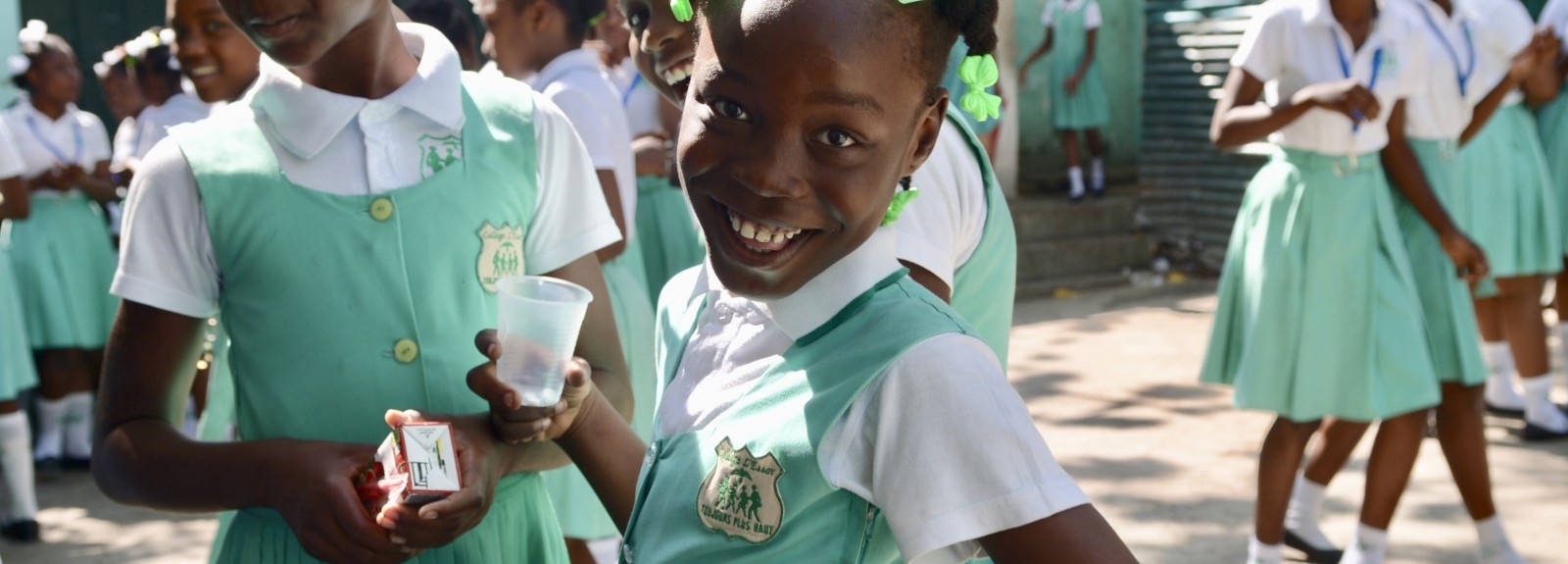In honor of World NTD Day, IMA World Health is pausing to acknowledge the hard work and partnership that has helped to bring the global goals for controlling and eliminating neglected tropical diseases (NTDs) ever closer.
IMA World Health (IMA) has been working to address NTDs for more than 20 years in Africa, Asia and the Caribbean. Work must continue to move the needle towards the World Health Organization's (WHO’s) 2030 control and elimination goals.
One in five people worldwide suffer from NTDs. This collection of diseases primarily impact those living in resource-limited communities, who commonly contract them through bites from insects or by having contact with contaminated water or soil. Controlling and eliminating NTDs is critical, as they impact the achievement of most health and development indicators. The diseases kill or disable millions of people every year.
Amid the COVID-19 pandemic, programming that prevents and responds to NTDs is imperative. With supply chain disruptions and overwhelmed health systems, reaching remote areas and operating in fragile settings is now more challenging than ever before.
Advancing NTD Control and Treatment
IMA has helped countries including Haiti, Tanzania, South Sudan and Democratic Republic of Congo (DRC) take significant steps towards NTD elimination through mass drug administration (MDA) and treatment.
In South Sudan, IMA now partners with the END Fund to build on more than seven years of IMA-supported national efforts to combat visceral leishmaniasis (VL). VL, also known as kala-azar, is a debilitating, and if left untreated, fatal NTD that over two million people are at risk of contracting across South Sudan. By joining with the END Fund, IMA is advancing local leadership by strengthening health systems for VL control as well as integrating VL diagnosis and treatment in 21 primary health care facilities in disease-prevalent counties.
In Tanzania, with support from SCI Foundation and in collaboration with the National NTD Control Program of Tanzania’s Ministry of Health, IMA conducted MDAs of school-aged children and implemented related activities for schistosomiasis (SCH) and soil-transmitted helminthiasis (STH) prevention and treatment in 93 districts across 15 regions. Despite challenges posed by the COVID-19 pandemic, the project reached over 5,122,000 children and achieved a 95 percent MDA coverage rate.
By partnering with the Ministry of Health in Tanzania, Dr. Lali Chania, our Tanzania Country Director, explains how IMA trained over 118,000 frontline health workers, government officials, community drug distributors and volunteers to conduct mass drug administration in our effort to prevent NTDs and improve health service delivery.
Health Systems Strengthening for NTD Elimination
In continuing efforts to control and eliminate NTDs, IMA prioritizes health systems strengthening to build resilience now and for the future. Dr. Abdel Direny, IMA’s Senior Technical Director of NTDs, recently discussed in The Guardian how the integration of NTDs into universal health coverage could be the best way for governments to meet the WHO goal of eliminating five key NTDs by 2030. “NTDs should be integrated into the health system, not treated as a separate entity,” he explained.
IMA’s recent work in Haiti is using this integration model to address NTDs through the WHO’s six building blocks of health systems strengthening to meet both Haiti’s immediate needs and long-term objectives. In doing so, our recent NTD programming – with funding from USAID and led by RTI International - achieved the following in Haiti:
- 7.3 million Haitians are no longer at risk for lymphatic filariasis;
- 61% decrease in the number of children with intestinal worms between 2002 and 2019;
- 87% of communes no longer require lymphatic filariasis treatment.
Continued Progress
With these significant achievements, IMA — with collaboration and support from donors, partners and communities — is proud to be in pursuit of health, healing and well-being for all in a world free of NTDs.
Dr. Direny remarks, “We are committed to lighting up the world to combat NTDs. We must continue to act to achieve transformational change in the lives of millions.”
IMA will continue combating NTDs, even in the most challenging of settings, to ensure a brighter future for all.


